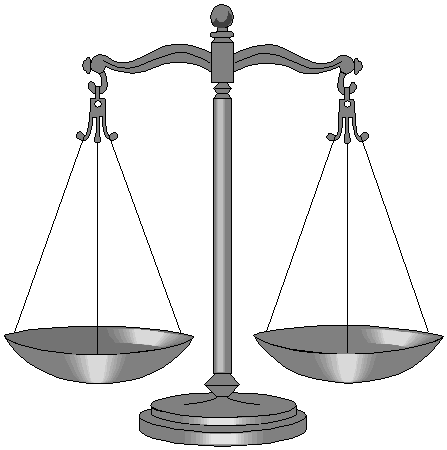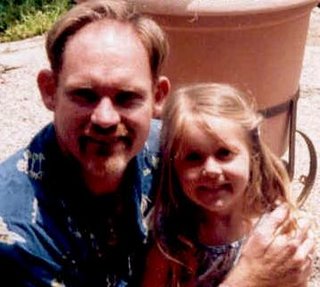A New Judge, A New Day for Fairness and Due Process

During preparation for the first trial of Cam Brown, Mark Geragos made a motion which, if granted, would allow him to go to the Prosecutor's office to get exact copies of the files regarding Cameron Brown’s case. Prosecutor Craig Hum vehemently objected by stating that everything he had was in the files held by the Sheriff's Investigator Jeff Leslie. He objected to his files being reviewed because the defense could get the same thing from the Sheriff's Department. Judge Arnold sided with Hum and the defense motion was denied. This decision is inconceivable for the following reasons:
When any evidence favorable to the accused is suppressed, the defendant’s right to due process is violated. The right to due process ensures a defendant's right to legal fairness. This right is set forth in the Fifth and Fourteenth Amendments of our Constitution, which prohibits government from taking a person's "life, liberty or property without due process of law." Our United States Courts have interpreted these Amendments as putting limitations on the ability of legislatures to pass laws which would unfairly infringe on a fundamental liberty.
In Brady v. Maryland, the Supreme Court found that withholding evidence violates a defendant's right to due process "where the evidence is material either to guilt or to punishment." In Brady v. Maryland, the Court found that the evidence in question would not have been exculpatory during the trial, but it would have a material effect on the level of punishment, and hence the defendant's case was remanded for retrial on the question of punishment. Material evidence is anything that has a bearing on guilt, innocence or sentencing. If there is a chance that the result of a trial would be different if the jurors knew the information being held, that information MUST be disclosed by the prosecutor.
The Brady Rule requires that information that can be used to impeach a witness must be disclosed. When there is information known to affect the reliability or credibility of a witness, that information must be disclosed to the defense because it weighs on the guilt or innocence of the defendant. The information must be disclosed because it could have a material effect on the decision of the Court or jury. While it is the obligation of the prosecutor to release such information, it is up to the defense to present it to the jury. Understandably any rulings by the Court which would suppress the information so that the jury is not allowed to hear it would be a violation of due process.
This is directly relevant in the trial of Cam Brown because the prosecutor brought two witnesses before the Court who had been offered deals for their testimony. The defense rightfully wanted that fact brought forth to the jurors. The Prosecutor objected and the Judge sustained his objection. This is significant because the witnesses were two of three who stated that Lauren walked behind Cam on their way to Inspiration Point. The erroneous impression was given that Lauren did not want to go to the Point and Cam was dragging her along in spite of her fears.
Witnesses with contrary reports were not called to the stand by the Prosecutor. Of the three who were, two had personal reasons to testify to the facts the prosecutor wanted to portray as truth. The third, a passerby, testified under direct examination by the prosecutor that Lauren was walking behind Cam. During cross examination his statement was challenged by the defense because it was in direct conflict with his original statement at the time of the accident in which he stated that Lauren was AHEAD of Cam. When reminded of that record, the witness suddenly remembered that the defense was correct and his direct testimony was NOT accurate. Lauren was indeed ahead of Cam. This conflict in testimony is the reason why defendants are protected by due process and allowed to examine ALL evidence and reports held by the prosecutor. Without the original reports, the prosecutor’s deception would not have been known.
The prosecutor must disclose all information that he is aware of that would be exculpating or beneficial to the defense, whether this information is held by him or the police/investigators. For this reason, the prosecutor is obligated to review all files held by the investigators and disclose anything within those files which is beneficial to the defense. Ignorance is not an excuse. There is no distance between the prosecutor and the all evidence generated and held by the police. The prosecutor is ultimately responsible for releasing all of it to the defense.
In short, IT IS THE PROSECUTOR’S DUTY to gather and turn over ALL files which maintain information relative to the guilt or innocence of a defendant. That duty is not negated by passing it along to another agency for any reason. It is not the obligation of the defense to gather or find the relevant information. The Court can not absolve the prosecutor of his duty to perform under Brady.
With regard to Cameron Brown’s case, the prosecution advanced the idea that Cam Brown lied when he said he talked to his wife from a telephone at the park. There was a telephone very near where Cam parked his car. The grand jurors who indicted Cam, and the jurors in his first trial, were both told that Cam lied about that phone call. The prosecution presented evidence to those jurors that no completed phone call had been placed to Cam’s wife from that telephone.
The problem is that Cam never told the detectives that he reached his wife from the first telephone. He told them that he reached her from the telephone located in the lower parking lot by the playground area. During the trial the prosecutor claimed ignorance with regard to the second phone and stated that the records of that telephone had never been checked! Because we know that the detectives and the prosecutor, by their own admissions, examined the entire area very thoroughly, there is no reason to believe they were not aware of the telephone which stands in the open next to the play yard. Even if only the detectives knew about that telephone, the prosecutor is ultimately responsible for anything that would materially affect the guilt of Cam Brown. Because Cam Brown’s supposed lie about the telephone call was a main thesis of the prosecution, deliberately ignoring it’s existence is a violation of Cam’s right to due process.
The “open-file” policies with regard to discovery is critical to ensure that all information of an exculpatory nature is disclosed. In Cam’s case, critical evidence was lost (the molds taken of depressions in the ground at Inspiration Point) while held in evidence. In spite of the fact these molds were lost, they were still referenced by the prosecutor and wrongly, according to the Los Angeles Sheriff’s Department expert, referred to as molds of Cam’s footprints! Because things were lost or ignored in this case, Cam’s right to due process has been violated. The only way to be sure that all information critical to the case has been released under the Brady rule is for all such information to be held in a single database controlled by the prosecution.
Judge Arnold’s decision to prevent the defense’s review of those files held by the prosecutor is a violation of his obligation to oversee the proper administration of justice for Cameron Brown. The refusal of the prosecutor to allow his files to be open to review and the attempt to thwart his obligation by passing it along to the Sheriff’s Department (which, by the way, is under no similar obligation) does not meet the requirements of state and federal law.
It is indisputable that experts, i.e. Professor Hayes, were interviewed and hired by the Prosecutor, Craig Hum. Any notes reflecting discussion between the expert and the prosecutor, along with any correspondence between potential experts or Professor Hayes, would be in the files of the prosecutor. Likewise, any findings of the Investigators employed by the Los Angeles District Attorney's Office, would be held in the files of the prosecutor. All of these files are potential breeding grounds for deceit and should be open to review in their entirety.
Detective Danny Smith had retired by the time the defense asked to review the files. His records were said to have been turned over to Detective Jeff Leslie. There is no assurance that everything discoverable from Danny Smith’s files were in deed in the files of Jeff Leslie. There is no assurance that the records held by Jeff Leslie were exactly those records held by the prosecutor, Craig Hum. We do not know what verbal information was given to the prosecutor by Danny Smith or anyone else, or what notes might have been added to the files held by the prosecutor with regard to discussions of the evidence. The purpose of Brady is to protect the defendant’s right to review ALL information influencing his guilt or innocence, and it is the Judge’s duty to ensure that his right is protected.
Because of violations under the Brady Rule and after the reversal of 100’s of cases due to failure to comply with the rules, oversight has been established in the state of California, particularly Los Angeles County. The California Commission of the Fair Administration of Justice and the Rampart Task Force made recommendations that are meant to enforce compliance under Brady.


